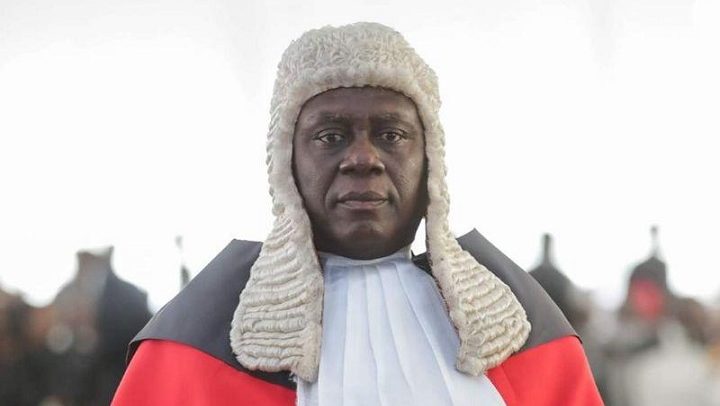Chief Justice Kwasi Anin Yeboah
Chief Justice Kwasi Anin Yeboah has said the General Legal Council (GLC) is in the process of ensuring that professional legal training is made more effective to produce “lawyers worth their training, with more focus on ethics, professional skills and procedural rules.”
According to him, this will enable the assessment of students to be based on their preparedness for the practice of law, instead of the existing scheme.
Speaking at the 10th anniversary launch of the Kumasi campus of the Ghana Law School in the Ashanti regional capital, Justice Yeboah said emphasis would be placed in the areas of practical work such as clinical work, moot course, courtroom practice and interviews and negotiations to ensure continuous improvement in the quality of legal education in the country.
In his view, professional legal education has come a long way in Ghana; and indicated that over the last few years, the GLC had been working closely with the National Accreditation Board (NAB) to ensure that the various law faculties feeding students into the Ghana School of Law met the required standards to make the training more effective.
“This year the council has taken steps to publish, for the first time in the history of legal education, the outcome of the joint monitoring exercise that is undertaken from time to time to enable interested individuals and stakeholders to observe the broader issues confronting legal education in Ghana,” he said.
The Chief Justice revealed that the council was currently preoccupied with developing measures that were aimed at improving the capacity of the various institutions running the LLB programme and restructuring the operations of the independent examination committee to enable it discharge its mandate more efficiently.
Simultaneously, Justice Yeboah said the GLC would also ensure the full implementation of its legal authority to enroll only students obtaining their LLB certificates from universities approved by the council.
“All institutions offering the LLB programme will undergo a more rigorous cleaning process before they are approved,” he said.
“The criteria for assessment will include the types of programmes, academic staff and qualifications, student-lecturer-ratio, library holdings and physical facilities among others,” he noted.
According to him, mentoring and inspection exercise will also be intensified from time to time. The legal framework to implement this is underway and the council will ensure broader stakeholder consultation in this regard.
Former President of the Ghana Bar Association, Paul Adu-Gyamfi, described the decision that led to the establishment of the Kumasi campus of the Ghana Law School (GLS) as “a bold and lofty one.”
Currently, the GLS has three campuses which are at Makola, GIMPA and KNUST Kumasi, and Mr. Adu-Gyamfi believes they are not enough since “we need to train more lawyers” to man the metropolitan, municipal and district assemblies (MMDAs) as well as the regional coordinating councils.
By Ernest Kofi Adu

